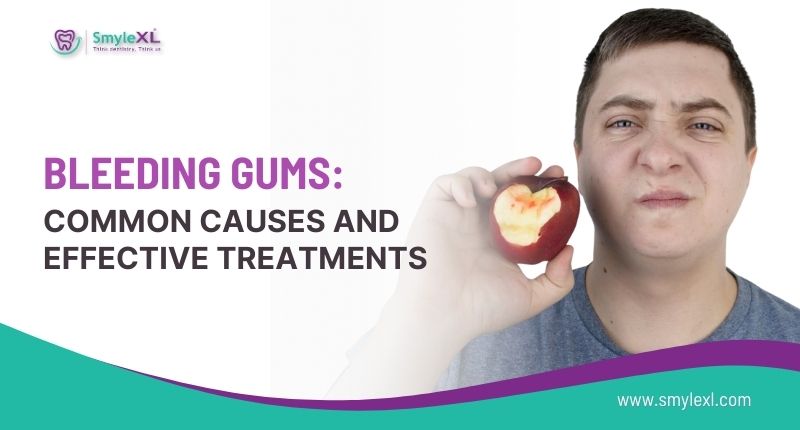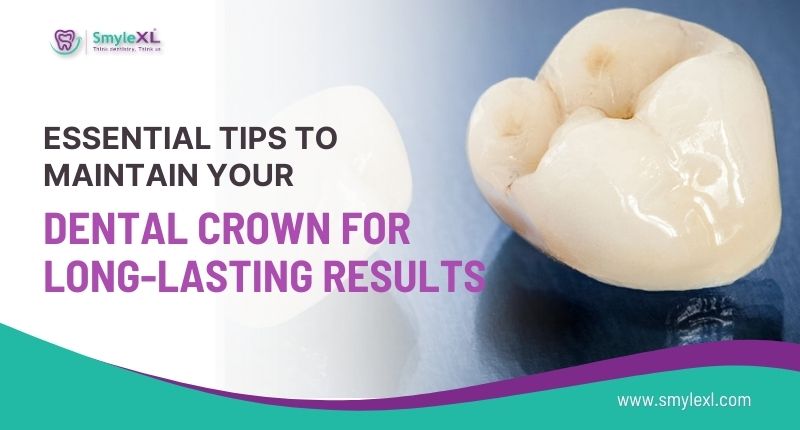You brush your teeth, rinse your mouth, and there it is—red streaks in the sink. Bleeding gums can be alarming, but before you start panicking, let’s understand what’s causing it and how you can fix it.
Why Do Gums Bleed?
Bleeding gums are often a sign that your gums need attention. Here are some common reasons why they might be acting up:
1. Poor Oral Hygiene
Skipping brushing or flossing? Plaque builds up, hardens into tartar, and irritates your gums, leading to bleeding. A good brushing and flossing routine can work wonders.
2. Gingivitis – The Warning Sign
The early stage of gum disease, gingivitis, makes gums swollen, red, and prone to bleeding. The good news? It’s reversible with proper gum treatment before it worsens.
3. Aggressive Brushing
Brushing too hard doesn’t make your teeth cleaner—it just damages your gums. A soft-bristled toothbrush and gentle strokes will do the job.
4. Vitamin Deficiencies
A lack of vitamin K and vitamin C can lead to weak gums. Adding more citrus fruits, leafy greens, and nuts to your diet can help.
5. Hormonal Changes
Pregnancy, menopause, or even puberty can make gums extra sensitive. During these phases, being extra gentle with your oral care can help.
6. Smoking & Tobacco Use
Tobacco irritates gums and slows down healing, making gum problems worse. Quitting can significantly improve your gum health.
7. Medical Conditions & Medications
Certain medications, like blood thinners or conditions like diabetes, can cause gum bleeding. If you suspect this, a dentist can guide you on the best approach.
How to Stop Bleeding Gums
The right approach can bring your gums back to health. Here’s what you can do:
Upgrade Your Oral Hygiene Routine – Brush twice a day with fluoride toothpaste and floss regularly. A gentle mouthwash can help keep bacteria in check.
Switch to a Soft-Bristled Toothbrush – Your gums aren’t a kitchen floor; they don’t need scrubbing. Be gentle!
Eat a Gum-Friendly Diet – Boost vitamin C intake with oranges, bell peppers, and strawberries. Green leafy vegetables and dairy products also help strengthen gums.
Stay Hydrated – This is a must. Drinking plenty of water washes away bacteria and food particles, reducing gum irritation.
Quit Smoking – I can’t stress this enough. This one’s a game-changer for your oral and overall health.
Try Advanced Gum Treatment – If bleeding persists, professional help is a must. Scaling, root planing, or laser treatments can remove plaque and restore gum health.
Visit a Dental Clinic Regularly – Prevention is always better than cure. A routine check-up can save you from bigger dental issues down the line.
When Should You See a Dentist?
If your gums bleed frequently, feel sore, or have bad breath that doesn’t go away, don’t ignore it. These could be signs of advanced gum disease, which may need specialized gum treatment before it leads to tooth loss.
Gums are like the foundation of a house—if they’re weak, everything else is at risk. A visit to a dental clinic can ensure your gums stay healthy, strong, and pain-free.
Bleeding gums aren’t something to brush off. Whether it’s a minor irritation or something more serious, addressing it early with advanced gum treatment could keep your smile bright and your oral health in check.
If you are looking for a dental clinic known for its advanced gum treatment, SmyleXL Dental Clinic is that place.










